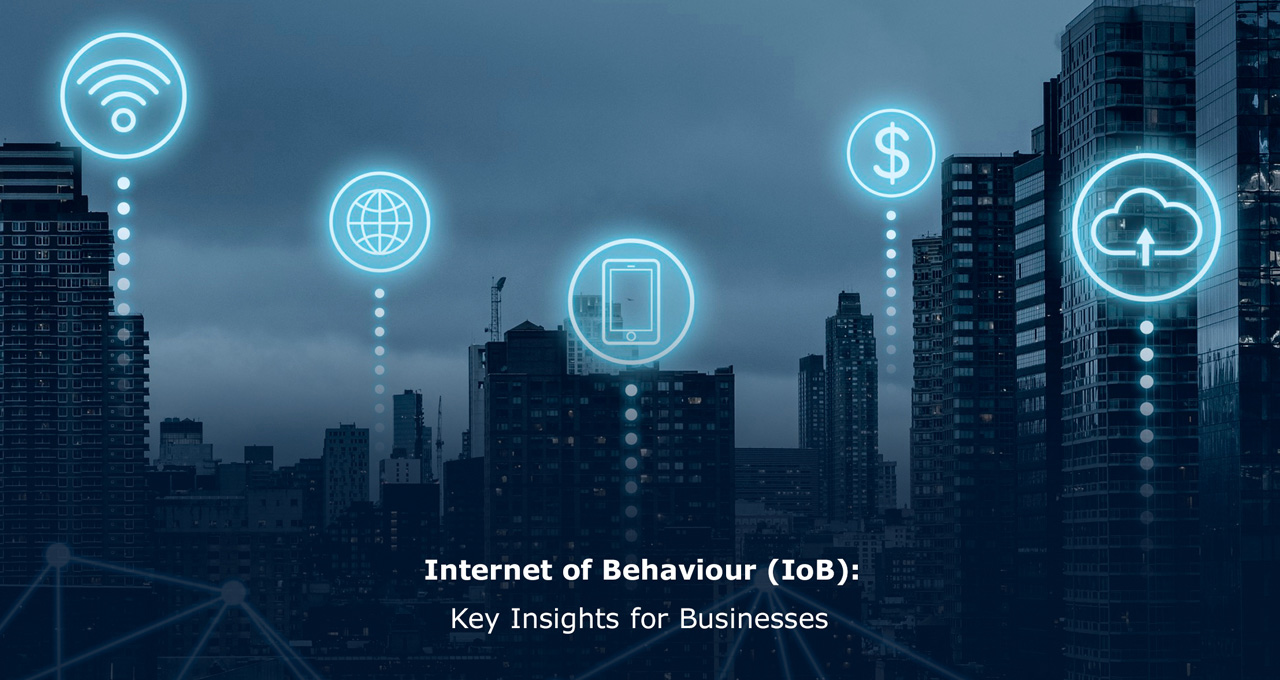
Image Credit: Image by rawpixel.com on Freepik
In the age of digital transformation, the Internet of Things (IoT) has revolutionized the way we interact with technology. However, have you heard of the Internet of Behavior (IoB)? IoB is a concept that revolves around the collection, analysis, and utilization of data generated by consumers’ actions, behaviors, and interactions with digital systems. It encompasses a wide range of technologies, including mobile devices, biometric sensors, artificial intelligence, machine learning, and data analytics. This data is then analyzed to gain insights into consumer behaviour, preferences, and emotions.
How is the data collected?
One key technique for data collection in IoB is social media monitoring. By analyzing an individual’s social media activity, businesses can gain valuable insights into customer behavior, interests and preferences. By analyzing what people post, search, and like, businesses can create targeted marketing campaigns and know how to approach specific customers.
Another technique is the use of biometric sensors. This can allow businesses to understand how customers react to different stimuli, such as product displays or advertisements. By collecting data on physiological responses such as heart rate and skin conductance, businesses can tailor their messaging to particular groups, essentially getting inside their head.
Location tracking is another powerful tool in the IoB arsenal. By tracking customers’ locations, businesses can analyze patterns of behaviour, such as how often they visit specific stores, how long they stay there and at what times.
Lastly, public data sources such as government and civic data can provide valuable insights into customer behavior.
The importance of IoB
The importance of IoB lies in its ability to bridge the gap between businesses and their customers. By harnessing behavioral data, organizations can create more relevant and personalized interactions, fostering customer loyalty and satisfaction. Here are some key reasons why IoB is crucial for businesses:
Enhanced Customer Understanding
IoB provides businesses with a comprehensive view of their customers’ behaviors and preferences. This deep understanding helps tailor products, services, and marketing efforts to meet individual needs, improving customer satisfaction and increasing conversion rates. For instance, a smart watch that tracks one’s fitness goals and offers suggestions to meet those goals is a great example of how IoB can provide an improved customer experience.
Improving Business Operations
IoB also provides businesses with the means to increase their productivity by automating certain processes. For example, sensors that track inventory levels can automatically trigger reorder requests, reducing the need for manual tasks. This leaves employees with more time to focus on higher-value tasks that require a human touch.
Proactive Decision-Making
IoB enables businesses to enhance their level of customer service by anticipating customers’ needs and responding to them proactively. This is achievable through the analysis of customers’ behavioral patterns, which allows businesses to predict upcoming trends, identify potential issues before they occur, and make informed data-driven decisions that contribute to business growth and competitiveness.
IoB’s Impact on Industries
The IoB has a profound impact on businesses across various sectors. Here are some key areas where IoB is transforming the way they operate:
Retail
IoB enables retailers to understand customer preferences and behaviors, both in-store and online. By leveraging this information, they can optimize store layouts, personalize shopping experiences, and implement dynamic pricing strategies.
Healthcare
IoB plays a crucial role in healthcare by facilitating remote patient monitoring, personalized treatment plans, and improved health outcomes. By analyzing patient behaviors and vital signs, healthcare providers can offer proactive care and early interventions.
Finance
In the financial sector, IoB allows for personalized financial planning, fraud detection, and risk assessment. By analyzing customer behaviors, banks and insurance companies can identify potential anomalies and offer tailored financial products.
Transportation
IoB revolutionizes the transportation industry by improving road safety, optimizing logistics, and enhancing the travel experience. By monitoring driver behavior, traffic patterns, and vehicle performance, organizations can enhance efficiency and reduce accidents.
Best practices for successful IoB implementation
When it comes to implementing IoB, there are several best practices that businesses should keep in mind to ensure a successful deployment. First and foremost, transparency is key. Customers should be informed about what data is being collected and for what purposes. This helps to build trust with customers and demonstrates that their privacy is being respected.
Proper data management is also critical for successful IoB implementation. Businesses need to ensure that the data collected is properly stored and protected from unauthorized access. It’s also important to ensure that the data is accurate, relevant, and up-to-date. This requires the use of robust data management systems that can handle large volumes of data.
Compliance with regulations is another key consideration for successful IoB implementation. Different regions and countries have different regulations regarding data collection and usage. Businesses need to ensure that they comply with all relevant laws and regulations. Failure to do so can result in legal penalties and damage to the business’s reputation. Furthermore, businesses should consider implementing a consent-based approach to data collection. This involves giving customers the option to provide consent before any data is collected. It’s important to make it easy for customers to opt-out of data collection if they so choose.
Finally, businesses should ensure that they have the necessary expertise in-house to handle IoB implementation. This may involve hiring data scientists or other specialists who can analyze and interpret the data collected. It’s also important to ensure that all employees are trained on how to handle customer data and comply with regulations.
Conclusion
The Internet of Behavior opens up new avenues for businesses to harness the power of behavioral data. By understanding customer preferences and behaviors, organizations can deliver personalized experiences, optimize operations, and make data-driven decisions.
The advantages of IoB are vast, from improved customer engagement and targeted marketing to enhanced operational efficiency and risk mitigation. As IoB continues to evolve, businesses need to adapt and invest in the technologies and expertise required to unlock its full potential.
Embracing the Internet of Behavior can help organizations gain a competitive edge in today’s dynamic marketplace, creating lasting customer relationships and driving sustainable growth.

